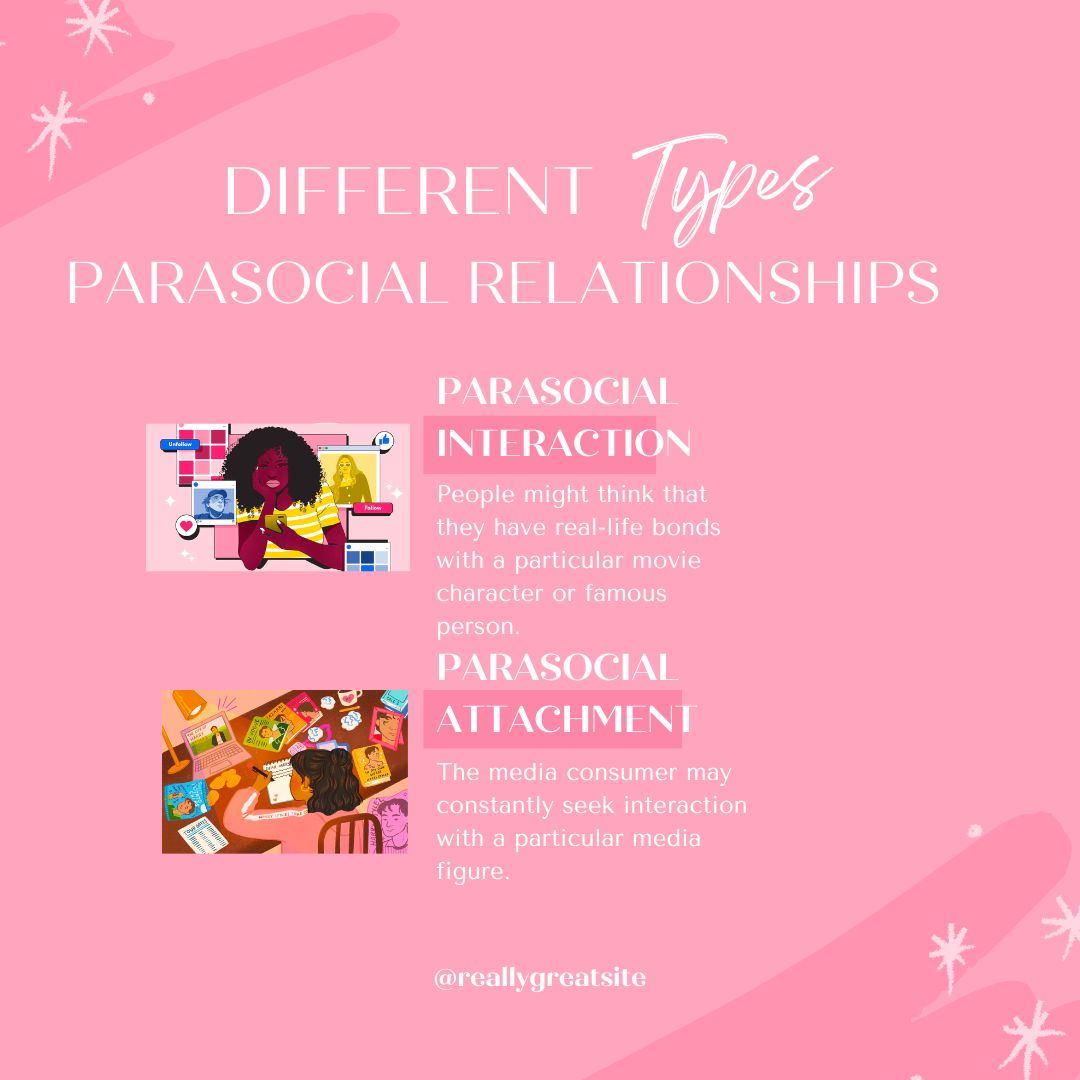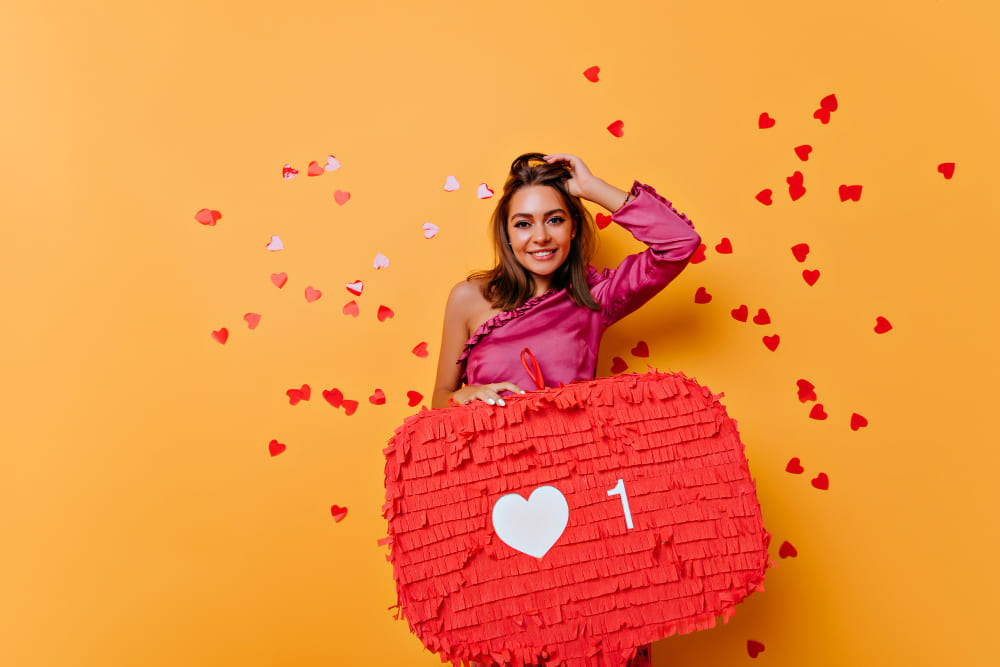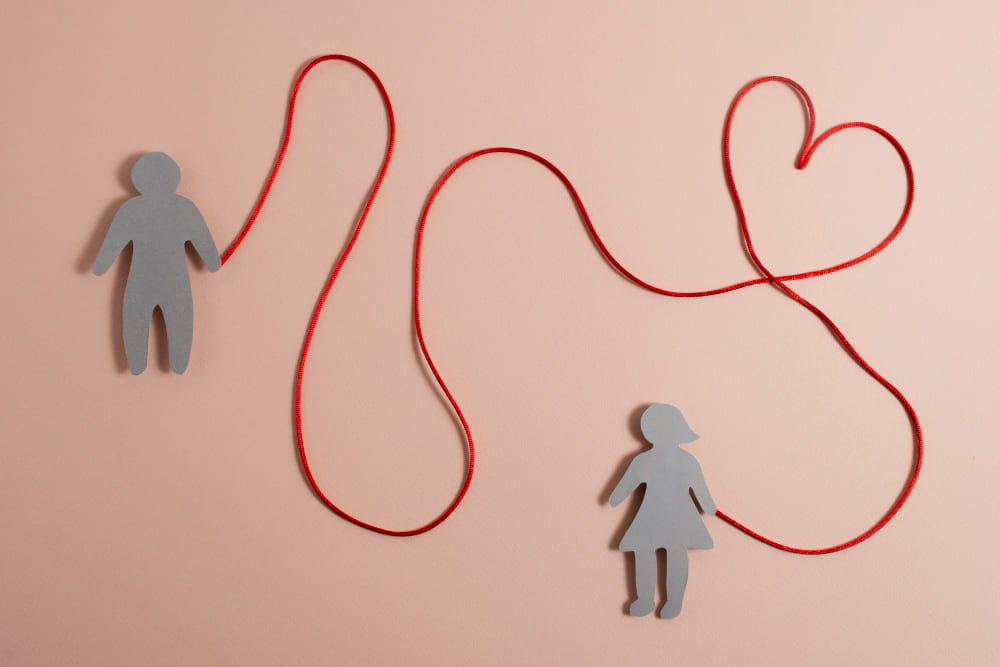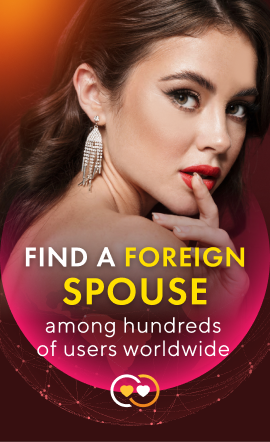Parasocial relationships are one-sided relationships between mass media consumers and famous people. While some individuals get involved in such types of bonds with celebrities and real characters, others form a parasocial attachment with social creatures, imaginary heroes, and fictional characters that never existed. The parasocial bonds may be in a form of friendship, romantic encounters, and even sexual affection. Read on to learn more about parasocial phenomena and the way they may affect people’s lives.
The concept of a parasocial relationship was founded by Donald Horton and R. Richard Wohl in 1956. Their article appeared in “Psychiatry” magazine the same year which lead to the revolution in psychology. Horton and Wohl devoted their work to mass media communication and para-social interaction which provoke intimate emotions in media users. With the development of this concept and the tendencies in media personas interaction, the statistic appears. Check out these facts to take a deeper dive into media psychology and parasocial interactions.
- Based on the relevant survey, 35% of media consumers are engaged in parasocial relationships. 10% of them do not even realize their unusual connection to a media figure.
- Social media influencers became the objects of such types of bonds with the appearance of bloggers on the social media scene.
- 20% of US citizens have undergone authentic bereavement once their favorite media figure passed away.
- 26% of media consumers have felt depressed when a fictional character on a TV show or movie has died or suddenly disappeared.
- The majority of individuals who form parasocial relationships with public figures are adolescent girls.
- Some individuals can bring their parasocial relationships throughout their entire life.
- The majority of media relationships end when a person finds a soulmate in real life or switches their attention to a more essential life aspect.
Related reading: Find Out 6 Reasons Why Bipolar Relationships Fail

A parasocial relationship may appear in different types, stages, and forms. Scientists differentiate two types of psychological bonds between media personalities and their fans or admirers. Some people may be at the stage of parasocial relationships that combine both types. Everything depends on the personality attributes of an individual and the level of connection with a famous person.
There is no need to interact with public figures directly to be in parasocial relationships with them. The concept pf parasocial interaction can be defined as the imagination of a real-life relationship. It can be associated with a conversational give and take, as if the participants of a one-sided relationship are close friends or lovers. The person may pretend to communicate with a pop star, while actually not.
A good example is visiting a Beyonce concert. If during the concert people pretend to communicate with a star, most likely, they are involved in parasocial interaction. In case fans continue to imagine that they interact with a singer after a concert in real life, their parasocial connections are on a high level, and it may directly affect their mental health.
Media psychology also distinguishes such term as parasocial attachment as a type of parasocial relationship. Media psychologist Gayle Stever established this notion and analyzed it to the tiniest detail. The other research by associate professor John Bowlby shows that parasocial attachment happens when the media figure becomes an integral part of a media consumer when the latter experience the feeling of comfort and safety while thinking about a personal relationship with a public figure.
The essential part of parasocial attachments is the proximity search. People may browse the social media accounts of celebrities, show particular interest in their works, read news about them, visit their public events, and even stalk them. It is crucial not to confuse this parasocial relationship form with persecution mania, which certainly requires professional assistance.
Are parasocial relationships healthy? The waters surrounding this topic are a tad murky. While it may seem that there are only negative consequences of such connections, scientists distinguish several positive consequences that contribute to self-growth, odd as it may sound.
Pros
Believe it or not but creating parasocial relationships may result in multiple advantages. Sometimes, such bonds may appear risk-free for both participants and lead to the following benefits.
- Boosted self-worth. In some cases, a social relationship may promote improved self-efficacy and confidence which may drastically affect the overall quality of life. In case there is a negative outcome of such affairs, it makes sense to think about the parasocial breakup.
- Ability to feel less lonely. Psychological research proves that young girls and boys seek parasocial interactions because of the increased level of loneliness. When media user focuses on someone special, they pretend to have some sort of interaction and therefore they reduce their loneliness.
- Enhanced social connections. If media consumers experience a parasocial relationship with a member of their family, they can boost their bonds by discussing the object of their admiration. It will hardly provoke the feeling of jealousy. Instead, it can reduce social distancing and make like-minded people closer to each other.
Cons
When an audience member or media consumer is attached to a media persona, such a psychological relationship may drastically affect multiple aspects of people’s daily lives such as:
- Political outlook. Some social influencers may represent the political state of affairs in a completely different way. If you can’t judge the situation independently, parasocial relationships may be the seasons of changing the political outlook.
- Crucial decisions. If you feel difficulties in making decisions and solving problems, you may go the wrong way after a particular person made an impact on your mind.
- Variety-seeking behavior. You may easily change your shopping ideas while listening to the ads of a blogger or viewing product marketing companies on TV.
- View on gender behavior. Are you striving for gender equality or do you would want to give a leading position in relationships? Media encounters can drastically change the attitude to gender behaviors and relationships in general.
- Assessments of essential life aspects. Media figures can affect your attitude toward crucial life aspects. It is even worse when parasocial relationships affect educational behavior or life safety choices.
While mass communication may promote positive changes in person, not all parasocial interactions are healthy. Just imagine how such bonds may affect the media user if they are all about following maniacal behavior or dangerous social media games.
Related reading: Emotional Safety â A Secret of Happy Relationship
Like real-life affairs, the beginning of parasocial relationships is when a person meets and likes a public figure. Moreover, there should be a special attitude to the media person. Moreover, it could be even the showcasing of affection and a sense of devotion. The person may seek the attention of a particular celebrity in social media files and apply a particular conversational style while writing messages or talking about a media person.

Nevertheless, some people are looking for a risk-free way to organize a meeting with a famous person. However, it is still necessary to remember that parasocial relationships don’t lead to real experiences, so it is senseless to look forward to real meetings with popular influencers, not to say about movie and book characters.
Also, it is possible to end parasocial relationships, which is quite normal since all bonds have their logical end sooner or later. A media consumer can also experience a parasocial breakup in case a beloved celebrity passes away or the TV series come to its logical end. Different people go through the end of parasocial interaction just like they experience the break of real-life relationships. In this case, parasocial relationships form depressive disorders or an increased level of anxiety.
Why do people create parasocial relationships with media figures? Actually, there are several reasons for that.
- The urge to make social connections. It is in human nature to build social relationships. Nevertheless, with the advent of social network and mass media, it becomes easier to access media figures. Since the showbiz industry is vibrant and fascinating, it is obvious that people want to become closer to celebrities.
- The media industry is focused on the increased level of human engagement. Starting from the costumes of pop stars during their performances and ending with the red carpet looks, the media industry developers do their best to attract people and make them fall in love with certain celebrities.
- A natural feeling of affection. Just like in the real life, some people may like other users while some characters may seem disgusting. People who create parasocial relationships experience just the same. They may not even notice the moment they have become affected by a particular media persona. Such an experience may be compared with the process of falling in love with a stranger.
- The content on social media platforms and TV affects human minds. The production of high-quality media content is a risk-free way to influence people’s minds. This is may result in the formation of stronger parasocial relationships with social media influencers or bloggers. It makes sense since nowadays, everybody strives to produce unique and extraordinary content to engage more social media users.
- Illusion of closeness. Once you have a direct interaction with a popular person with the help of social media sites, it creates the illusion of being close to a particular media person. It gives the perception that an influencer is an ordinary person, just like you, which is the cornerstone of forming parasocial relationships.
Do you think you are engaged in a parasocial relationship? How to differentiate such a state of affairs from a typical social relationship? Take a peek at these real stories of parasocial interaction to get a better sense of what people experience once associated themselves with those who are in close connections with celebrities.
Jack, 25 and his passion for Tailor Swift
I am in love with Tailor Swift, and when I listen to her songs, I think we come closer to each other. This is an ideal woman for me and I hope we will meet someday. I do numerous things to distract my attention from Tailor. I even registered on dating sites, but nothing helps. I constantly track her Instagram page and I hope she will respond to my messages one day.
Sarah, 21 and her affection for Wednesday
While Jenna Ortega seems to be an ordinary actress to my mind, I couldn’t be indifferent to the character she brought to the masses. Wednesday is an ideal type of teenager for me and I continue to associate her with myself. I know that all people are different, but I can’t resist the temptation of thinking about Wednesday and pretending to be her. I know that thousands of people have already emulated her iconic dance, but for me, this is not only about appearance. This is about the way she carries out herself in public and with friends. I am looking forward to the new seasons because I don’t want to say goodbye to this amazing character.
Bill, 32 and his admiration of Harry Potter
Even though I am 32, I am still a fan of Harry Potter. And it is even more than just a fascination with a book character. I often imagine that he is my friend and we often do magic together. I am a participant in a big fandom, I follow all the social accounts of the character and actor, but it isn’t sufficient for me. I am waiting for the story to be continued. Despite knowing that our relationship isn’t real, I am still dreaming about bromance and friendship full of mysterious adventures.

Final Thoughts
A parasocial relationship can be a certain form of dependence on a particular person. Even though these state of affairs have their downsides and virtues, it is still advisable not to lose control over emotions in order to avoid unpleasant consequences. Parasocial relationships may vary in terms of their type, stage, and flow. They drastically affect the lives of individuals, especially when a person experiences deep feelings toward a media figure. Even if you have a one-sided relationship with media personalities, you still need to understand that the bonds aren’t real and there is nothing better than real feelings and emotions.

Greetings! My name is Grace Mitchell. I am a licensed marriage and family therapist based in LA. While having vast experience in the relationship sphere, I worked with numerous couples, including international ones. I know all the nuances and possible obstacles to happiness that numerous people face when trying to create rapport.Â




As someone who has experienced parasocial relationships firsthand, I found this article to be incredibly insightful. It’s important to recognize the potential harm that can come from one-sided relationships and take steps to prioritize real-world connections with friends and loved ones.
Excellent thought!
Oh, I really understand everything described in the article. My cousin is obsessed with BTS, buying all their posters, mugs, and shirts. I hope she comes to her senses and finds a boyfriend soon. Does anyone have any ideas on how to help her overcome this childish infatuation?